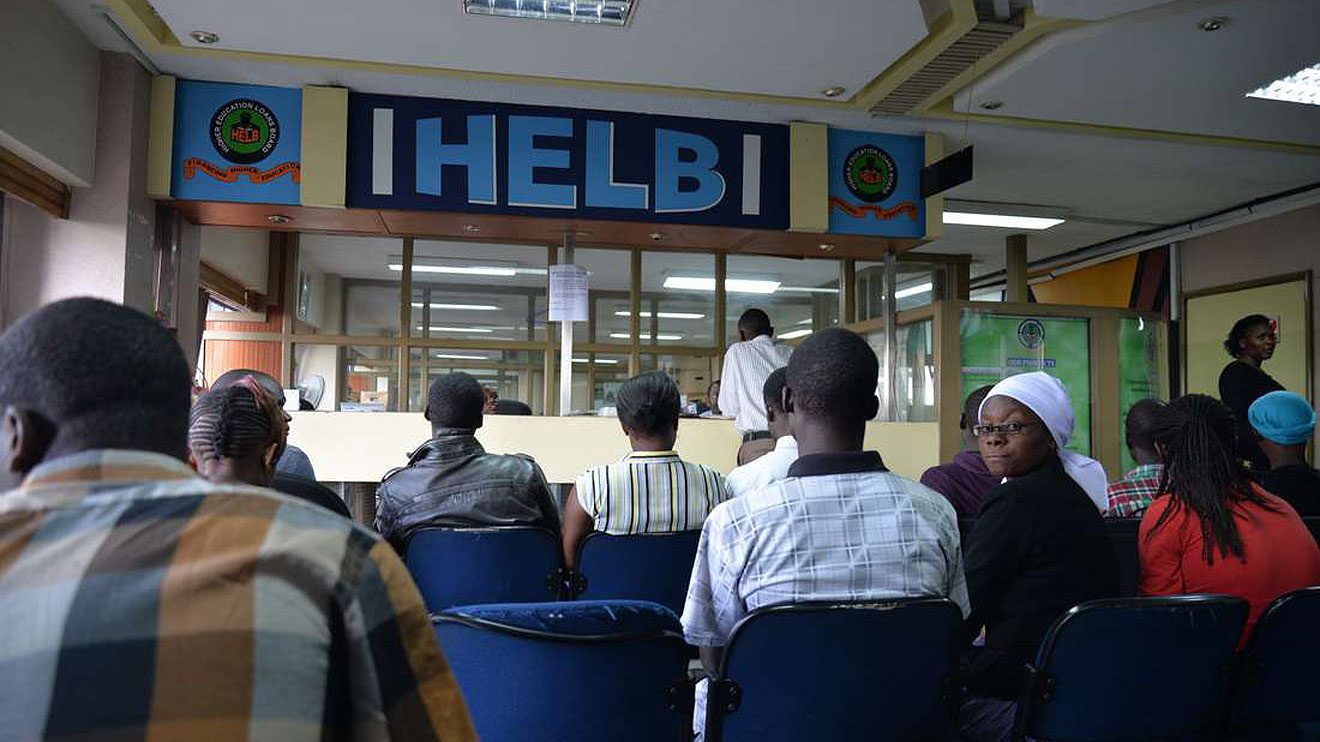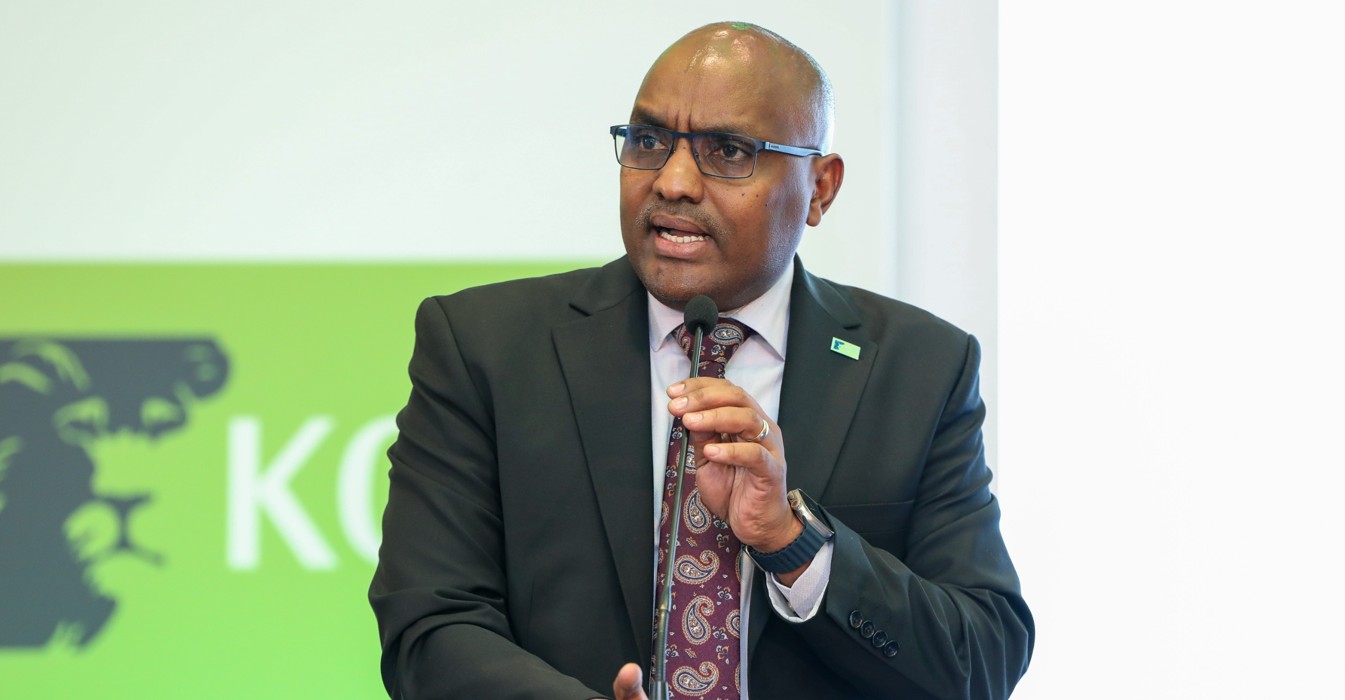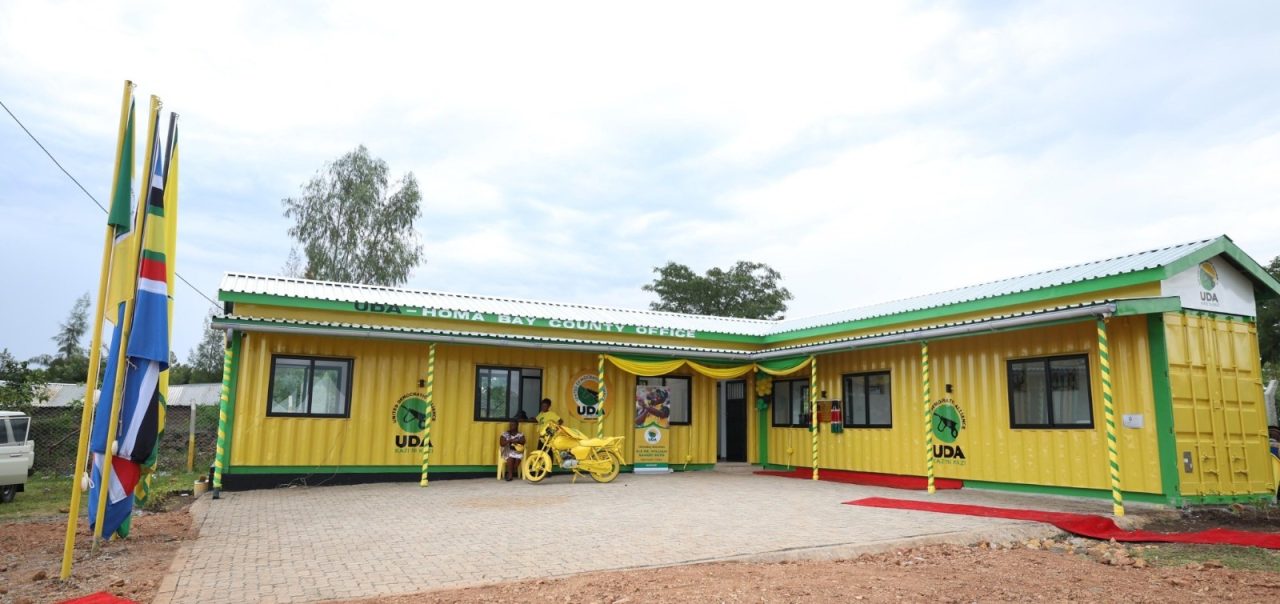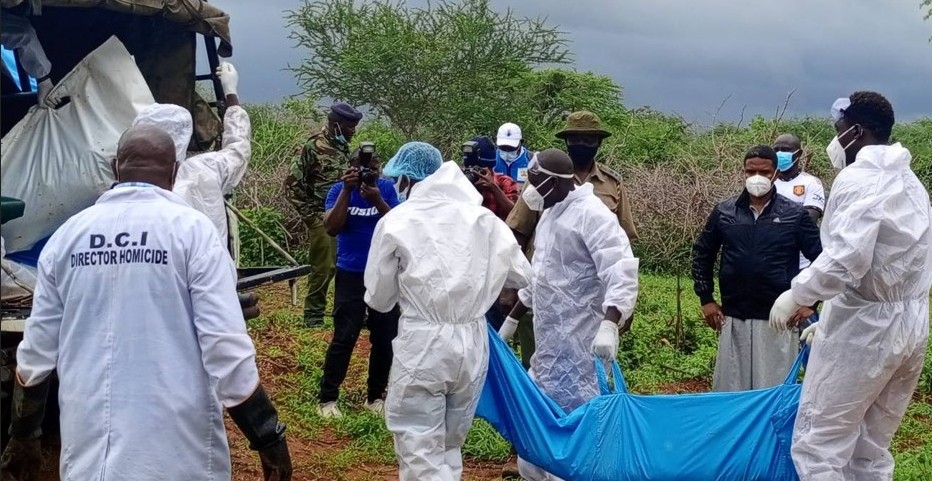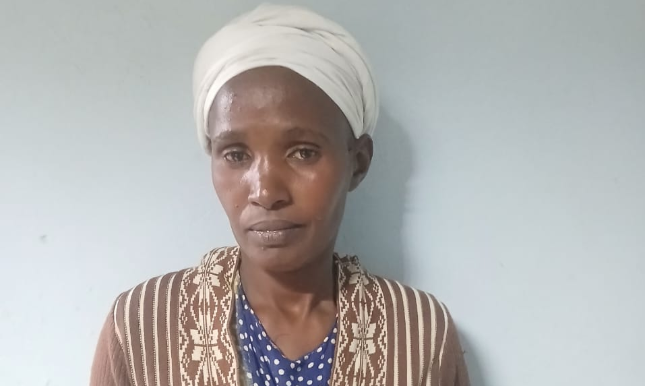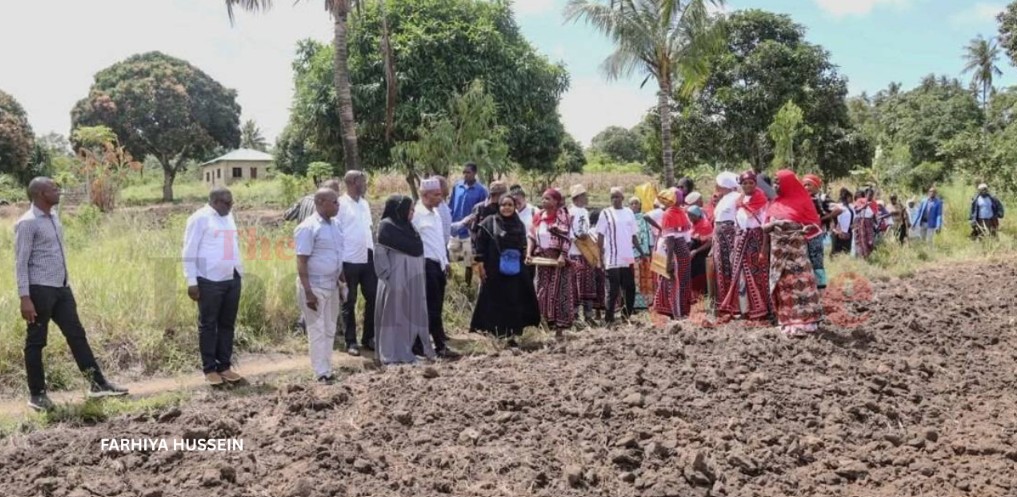‘Men need to be heard’: Widower speaks after losing wife during childbirth
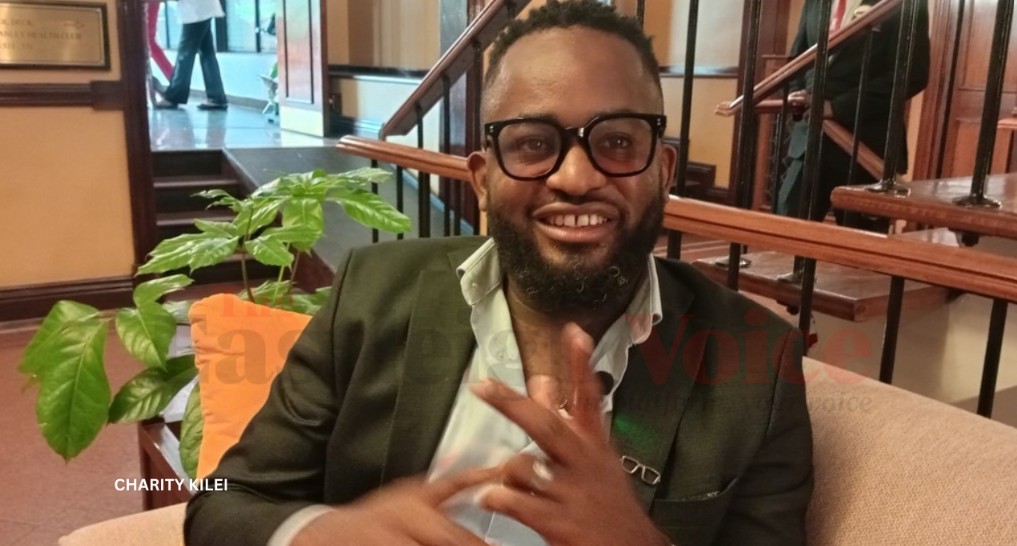
While children mourn the loss of their mother, the father must carry his own pain while stepping into the immense role of caring for a newborn, raising other children, and navigating a future clouded by grief.
When Victor Ambula was handed his newborn daughter, Janelle, after losing his wife Zipporah to postpartum haemorrhage, a haunting question echoed in his mind: Where do I go from here? Who is there to support men? Amid the overwhelming grief came another heavy burden—the silent, unseen weight of his own emotional and practical needs.
In a society where childbirth is often regarded as a woman’s journey, with all attention on the mother and child, fathers like Ambula are often left in the shadows.
More To Read
While children mourn the loss of their mother, the father must carry his own pain while stepping into the immense role of caring for a newborn, raising other children, and navigating a future clouded by grief.
On the evening of October 24, 2023, Victor and Zipporah walked into the hospital for a scheduled selective C-section. What was meant to bring new life instead brought devastating loss. The surgery, planned for the next day, ended up taking Zipporah’s life.
Victor remembers that day with painful clarity. "I didn't want more children, but Zipporah kept pushing for a daughter. She wanted a girl, and so we had one."
That decision, made in love, now haunts him in ways he never could have anticipated. In an instant, he became a widower—a father of four with a newborn to care for and three other children who needed him more than ever.
Doctors had reassured him that Zipporah would be fine. But when he looked into the operating theatre, he saw her lying lifeless, surrounded by blood. "Her organs shut down," he recalls, the memory still raw and the pain as fresh as if it happened yesterday.
The responsibility of holding everything together fell squarely on his shoulders, alongside society’s unspoken command: Rise to the occasion. Be strong for your children.
Hardest part
"Telling them their mother wouldn't be coming home... that was the hardest part," he says, his voice breaking. "An extended family member helped to break the news, but it still crushed me. How do you explain to a child that their mother is gone forever?"
The days that followed were a blur of grief and responsibility. Every morning at 5 a.m., he rose to prepare breakfast for his children before heading to work. Evenings were spent helping with homework, making dinner, and trying to ensure his children felt safe and loved. "I'm not managing perfectly, but I'm doing my best," he admits.
Alongside the emotional strain came financial pressure. "Janelle would go through an entire can of formula in just two days," he says. "I spent so much just to keep her fed. Diapers, clothing, medical bills... it was all piling up."
What struck him most was the absence of support for men in his position. "When women lose their partners or children, there are so many support groups, foundations, and people coming together to help. But what about us, the men? Where are the spaces for us to talk about what we're going through? Who's checking in on us?"
Emotional and financial support
He points out that while women often have access to emotional and financial support programmes, men are expected to manage alone.
"We're expected to handle everything ourselves. No one checks in on us. We're told to fight through it, to keep going no matter what. But we're human too, and we need help just like anyone else."
Despite the burden, Ambula found moments of light.
"I celebrated Janelle's first six months, her first birthday. It was beautiful," he says, smiling through the pain.
"My friends and family were there for me, and that support meant everything. Creating memories for Janelle, even in the midst of loss, has been so important."
The silent struggles of men often go unnoticed. "Sometimes, it feels like men are expected to push through everything alone," he says, a mix of frustration and quiet resolve in his voice.
"But we need to acknowledge that men, too, need support, help, and spaces to grieve. No one should have to go through this in silence. Men need to be heard."
 Dr Einstein Kibet, a paediatrician and maternal and newborn health expert at Mwai Kibaki Referral Hospital. He says many maternal deaths in Kenya are preventable. (Photo: Charity Kiklei)
Dr Einstein Kibet, a paediatrician and maternal and newborn health expert at Mwai Kibaki Referral Hospital. He says many maternal deaths in Kenya are preventable. (Photo: Charity Kiklei)
Postpartum haemorrhage
Kenya faces a grim reality: postpartum haemorrhage (PPH) claims the lives of approximately 10 women every day, leaving behind children—some barely surviving—and fathers forced to navigate life alone.
The World Health Organisation (WHO) defines PPH as “a blood loss of 500 mL or more following vaginal birth, or 1,000 mL or more following a cesarean section, within the first 24 hours after delivery.” It remains one of the leading causes of maternal mortality worldwide, and can also be diagnosed when a woman shows severe signs of blood loss, even without exact volume measurements.
The death of a mother—especially in the immediate postpartum period—puts newborns at heightened risk due to the sudden loss of maternal care, breastfeeding, and protection from infections.
Dr Einstein Kibet, a paediatrician and maternal and newborn health expert who leads Healthcare Quality at Mwai Kibaki Referral Hospital, says many maternal deaths in Kenya are preventable. He cites PPH, hypertension, and infections as leading causes.
Uncontrolled bleeding
One major factor is uncontrolled bleeding during childbirth. Dr Kibet notes that many hospitals lack the resources to manage severe haemorrhaging.
"There are times when even after mothers arrive at a facility, they die simply because the hospital lacks blood, essential drugs, or adequately trained healthcare staff," he explains. "Substandard care and delays within the healthcare system continue to claim lives."
"We continue to lose too many mothers due to bleeding, hypertension, infections, and postpartum haemorrhage," says Dr Kibet. "These are deaths we could prevent. It's unacceptable that we're still losing mothers in this day and age."
He highlights the “three delays” that often prove fatal. The first occurs at home when families fail to recognise danger signs or hesitate to seek medical help. "In many cases, the household doesn't recognise the danger signs, or they delay deciding to seek help. This indecision can be fatal," he cautions.
The second delay happens after the decision to seek help has been made, but transportation becomes a hurdle. "Some women live far from healthcare facilities, and by the time they reach the hospital—often after travelling long distances on poorly maintained roads—they've already lost a significant amount of blood," Dr Kibet says.
Stronger health systems
These delays remain a major barrier to reducing maternal deaths in Kenya. Dr Kibet calls for stronger health systems, better preparedness, and faster access to treatment.
"It's time to address these gaps in care and make sure no mother has to die from preventable causes," he stresses.
Research also suggests that widowed men face unique emotional barriers. A 2021 study titled “Grief and Masculinity: Understanding Men's Bereavement After the Loss of a Spouse” found that societal expectations—such as emotional restraint and self-reliance—often leave men isolated.
Interviewing 20 widowers, researchers found many felt pressured to remain stoic, suppress emotions, and avoid seeking professional help for fear of appearing weak. This emotional suppression often led to unhealthy coping mechanisms, from overworking to substance abuse.
Researchers argue for gender-sensitive support systems that encourage men to express emotions without fear of judgment, helping them heal in healthier ways.
According to Kenya’s Ministry of Health, PPH causes around 3,000 maternal deaths annually, making it one of the leading killers of women in childbirth. Across Africa, it accounts for 25–43 per cent of maternal deaths and affects roughly 10–11 per cent of all births. The continent bears about 70 per cent of the global burden of PPH-related deaths.
Globally, the WHO reports that PPH complicates 6–11 per cent of deliveries and causes 20–27 per cent of maternal deaths, claiming between 44,000 and 86,000 lives each year. Approximately 14 million women experience postpartum haemorrhage annually.
Top Stories Today

